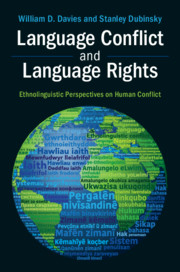Crossref Citations
This Book has been
cited by the following publications. This list is generated based on data provided by Crossref.
2019.
Publications Received.
Language in Society,
Vol. 48,
Issue. 1,
p.
169.
Reale, Cesco
Kilani, Marwan
Giménez, Araceli
Barbashova, Nadu
and
Oechslin, Roman
2021.
Design, User Experience, and Usability: UX Research and Design.
Vol. 12779,
Issue. ,
p.
457.
Wang, Ai-Ling
2021.
Redefining the Role of Language in a Globalized World.
p.
1.
Chelliah, Shobhana L.
2021.
Why Language Documentation Matters.
p.
41.
Chen, Ken-Zen
and
Lee (Singko Laway), Yuan-Hung
2022.
One-person armies: the border-crossing Taiwanese native-language teachers in technology-rich classrooms.
Interactive Learning Environments,
p.
1.
Wang, Ai-Ling
2022.
Research Anthology on Applied Linguistics and Language Practices.
p.
1320.
Kontra, Miklós
2022.
Hungarian Sociolinguistics in the Carpathian Basin, 1985–2022.
Hungarian Studies Yearbook,
Vol. 4,
Issue. 1,
p.
33.
The-Thitsar, Myat
2022.
Empowering or endangering minorities? Facebook, language, and identity in Myanmar.
Asian Ethnicity,
Vol. 23,
Issue. 4,
p.
718.
Dubinsky, Stanley
and
Starr, Harvey
2022.
Weaponizing Language: Linguistic Vectors of Ethnic Oppression.
Global Studies Quarterly,
Vol. 2,
Issue. 2,
Haslinger, Peter
2022.
Language conflicts and securitization in multilingual societies.
Language Problems and Language Planning,
Vol. 46,
Issue. 2,
p.
131.
2023.
Understanding Bilingualism, Bilinguality, and Bilingual Education in an Era of Globalization.
p.
60.
Csata, Zsombor
Péti, Márton
Compton, Betty
Liu, Amy H.
and
Sándor, Zsolt
2023.
The income effects of minority co-ethnic employment: the case of Hungarians in central and Eastern Europe.
Journal of Ethnic and Migration Studies,
p.
1.





